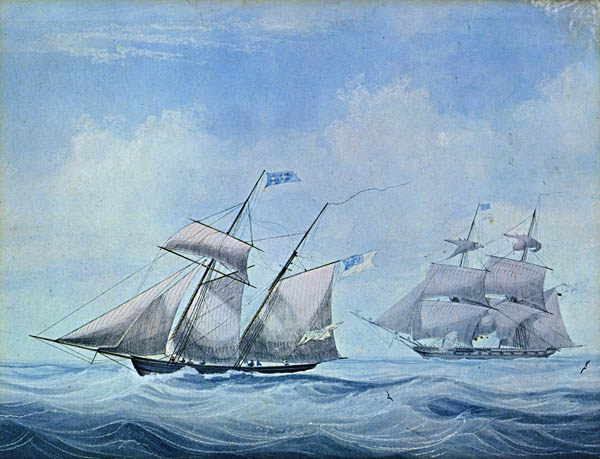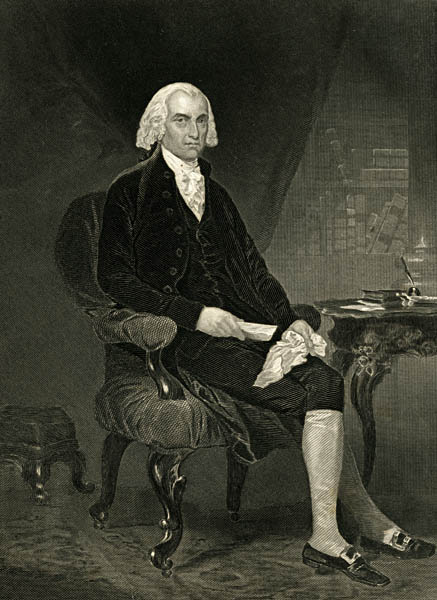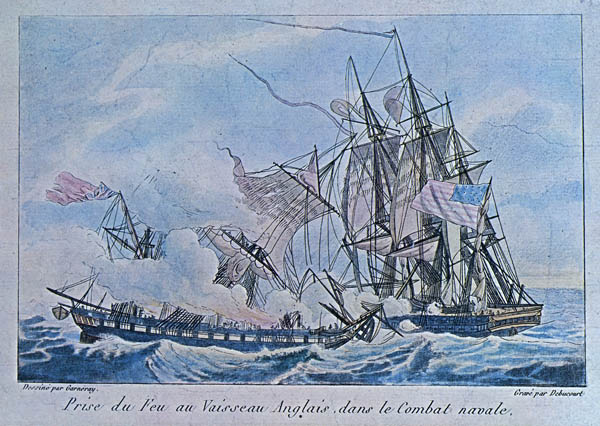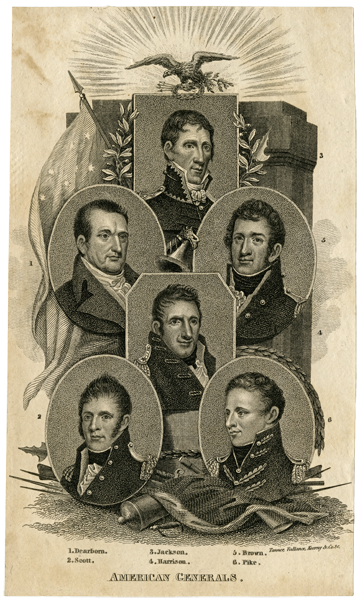
The Nation Braces for War
The United States, under the presidency of James Madison, declared war on Great Britain on June 18, 1812. Great Britain, in the midst of a life-and-death struggle with the French emperor Napoleon, sought to control commerce on the seas by ordering maritime sanctions on American shipping. In addition to preventing American goods from reaching continental Europe, the British impressed American seamen on the basis of their being suspected deserters. As a result, "Free Trade and Sailors' Rights" became a popular slogan for Americans during the war.
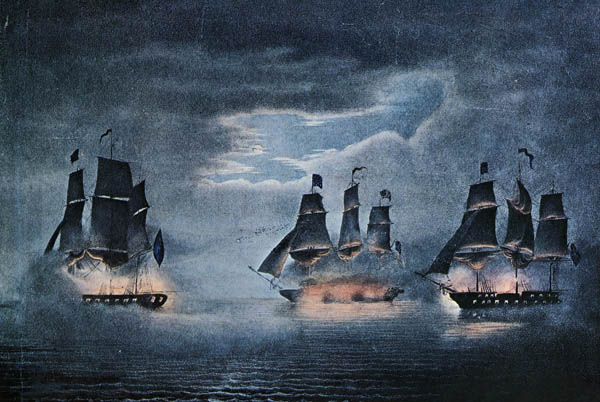
The capture of H.M.S. Cyane and H.M.S. Levant by the U.S.S. Constitution
Library Photograph Collection, Oversize
A faction in U.S. Congress, dubbed the War Hawks, went to great lengths to convince Americans that the nation's honor had been insulted and that the only recourse was through armed conflict. In the "western" states of Ohio, Kentucky, and Tennessee, Native Americans living on the fringe of the frontier were seen as a threat to American security and an obstacle for further expansion. Most Americans firmly believed that the British, from their Canadian province, were inciting the Native Americans to plunder and massacre American settlers on the frontier.
What is impressment?Impressment is the practice of forcing unwilling men into military service. The British Royal Navy halted U.S. vessels to search for deserters and forced U.S. citizens into service.
(1751-1836)
James Madison, the Father of the Constitution and the Bill of Rights, was President of the United States during the War of 1812. Great Britain's seizure of American cargo and sailors drove Madison to side with the War Hawks, so he asked Congress for a declaration of war on June 1, 1812. In September 1814, Madison and the government fled Washington in the face of an enemy invasion, and British soldiers burned public buildings, including the White House (then known as the Executive Residence) and the Capitol. He died in 1836, having outlived all of the other Founding Fathers.
Special thanks to Tony Teal and Dr. Kathleen M. Therrien for their assistance.
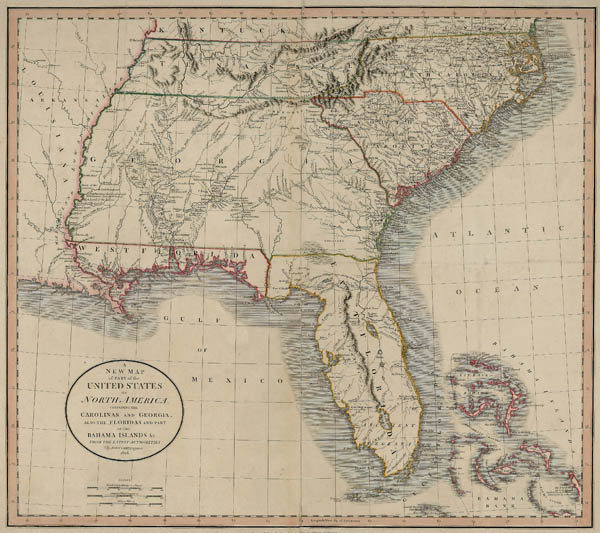
"A New Map of Part of the United States of North America," 1808
Map Collection
This map was printed in Cary's New Universal Atlas (London, 1808). Note the spelling of Tennessee (Tenassee) and Fort Loudoun (Lowdon) on the map. The map was based on earlier maps of the region because Fort Loudoun no longer existed in 1808.

|
